'Peacemaker' Has a Problem With Bisexual Male Representation
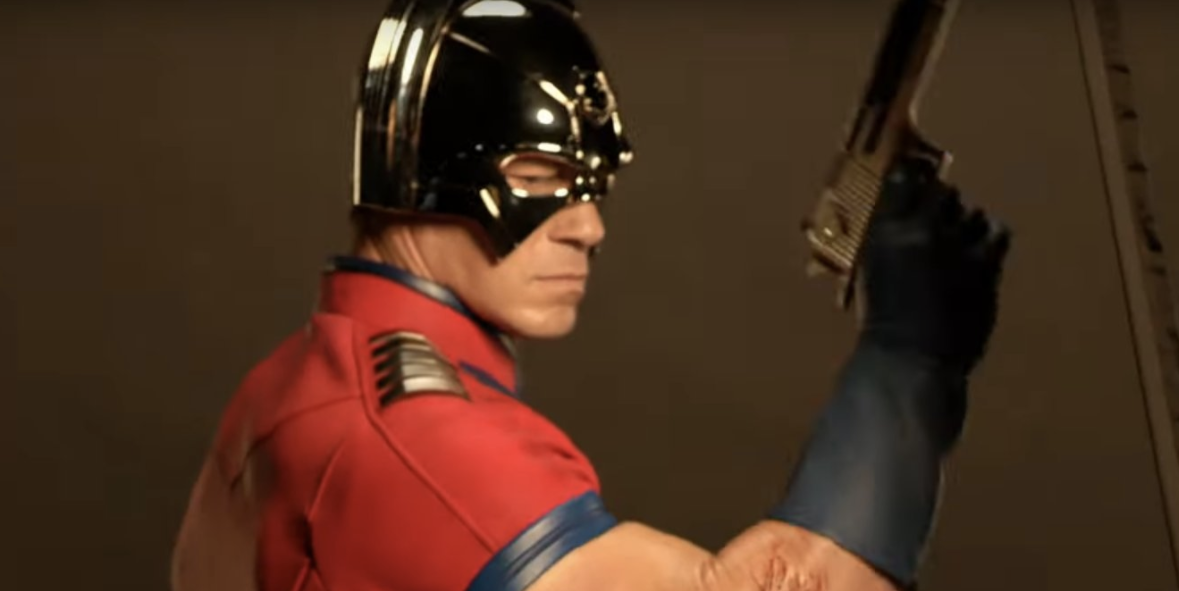
- Oops!Something went wrong.Please try again later.
Peacemaker spoilers follow.
When it comes to representation in comic book movies and TV shows, queer people have historically been given crumbs. Watching many modern comic-book blockbusters, you'd be forgiven for not realizing queer people even existed based on how often we see ourselves portrayed in live-action. Things are admittedly starting to change, but that change isn't exactly the quickest.
It took 11 years of MCU movies before queer people were even acknowledged in the series, and another two and a half years after that before we saw a queer person given a name. DC hasn't exactly been amazing for representation either: 2020's Birds of Prey confirmed protagonist Harley Quinn as bisexual, and the animated Harley series is basically dedicated to exploring Harley's romance with Poison Ivy, but the company lost a lot of goodwill with The Batman earlier this month, which both refused to verbally confirm Selina Kyle as bisexual, and played itself into an unfortunate "bury your gays" trope.
So you see, queer comic-book fans are used to being disappointed when we see ourselves portrayed on-screen. This is nothing new. But what's perhaps worse is the deceptive, brutal one-two of a film or show taking incredible care to successfully portray one character as queer, and then totally butchering another when it tries to do the same thing.
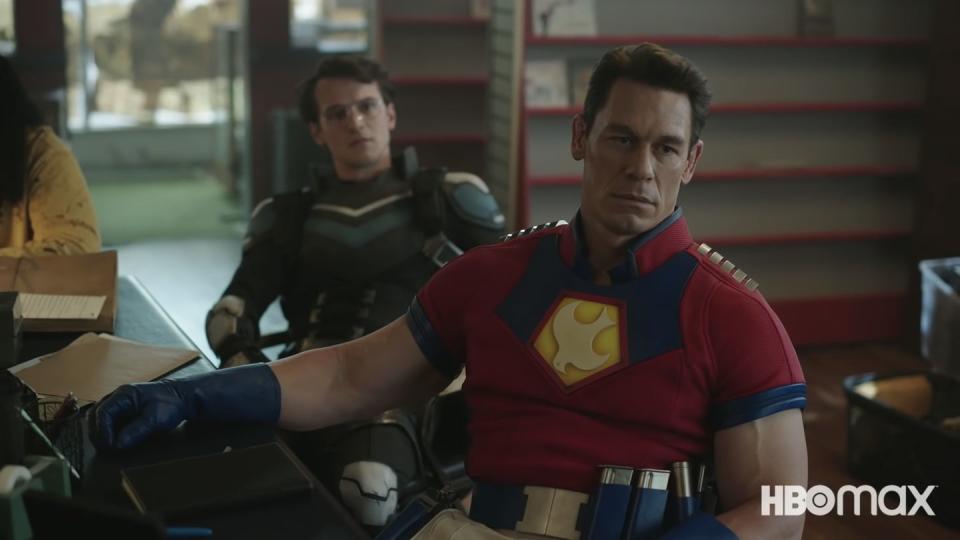
Enter James Gunn's Peacemaker.
Peacemaker, new to Sky Max and NOW in the UK, is a spin-off of last year's The Suicide Squad, and sees Christopher Smith/Peacemaker (John Cena) once again recruited by the US government for a top-secret mission. The series sees a returning cast including Cena, Jennifer Holland and Steve Agee, joined by franchise newcomers Danielle Brooks, Freddie Stroma and Chukwudi Iwuji.
By and large it's an excellent debut season, complete with James Gunn's trademark violence and language – which are enough to set it apart from other modern comic book shows – but it has a huge problem when it comes to bisexual men.
There's a notable difference in the way Peacemaker treats queer women and the way it treats queer men. The character of Leota Adebayo (Brooks) is arguably the heart of this season: she exists to force Smith to confront his prejudices about both Black people and gay people, but she's so much more than that. Her queerness isn't simply a throwaway line, it is absolutely key to her character. Her relationship with her wife (Elizabeth Ludlow) is important as it gives Leota a reason to keep fighting.
There's conflict, yes, as Keeya struggles to understand why Leota's job matters so much, but the pair's bond and love for one another is never treated by the show with anything less than the utmost respect.
By contrast, the show's one queer man is utterly disregarded in his sexuality. In the heat of battle in episode seven, it's revealed to the audience that Peacemaker himself is bisexual. But it isn't revealed in the same way that Adebayo's lesbian relationship is revealed (ie in a matter-of-fact way that makes no fuss, or being actually developed as the show goes on).
Instead the reveal is used as simply another reason why Chris' neo-Nazi father (Robert Patrick) hates him so much.
Egged on by a crowd of his white supremacist followers, Chris' father berates him: "I knew you was [sic] unclean when you were born," he yells. "I knew when you slept with the whores of polluted blood, and men," he continues, much to the approval of his lackeys.
After a brief tussle, he taunts Chris into killing him, calling him a "f**king pussy" and a "f****t" before he pulls the trigger and ends his father's life.
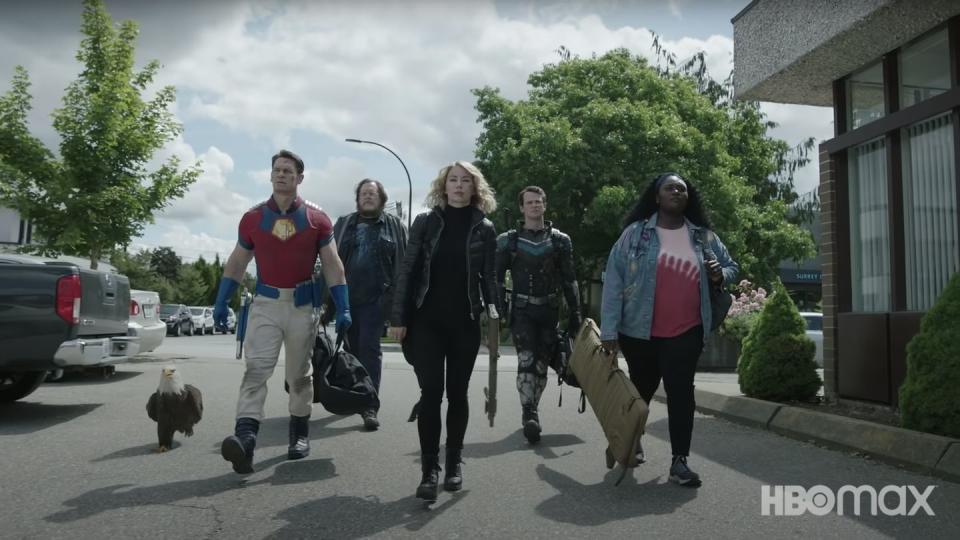
And… that's it. That's all the coverage Peacemaker's bisexuality gets in the entire season. Chris killing his father is unquestionably an emotional moment for him, as it brings to a close the cycle of abuse and indoctrination he's suffered his whole life, but that doesn't excuse treating his sexuality with such disregard.
The decision to give this reveal to a Nazi is almost a bold one, but to see the very concept of bisexuality weaponized against our protagonist, and without any tonic for it anywhere else in the show, is incredibly disappointing.
It's obvious that this was something added to the episode late in the day. In an interview with Empire magazine, James Gunn reveals that it was John Cena himself who decided Peacemaker should be bi, and the rest of the production just ran with it. But what both Gunn and Cena misunderstand is that this isn't something you can just pay lip service to.
If you want to make a character queer, you have to do it properly – you can't just have someone say, "This person is queer" and leave it at that (looking at you, Loki). It needs to be developed, like it is with Leota and her wife. Which begs the question: why does Peacemaker treat its queer men differently from its queer women?
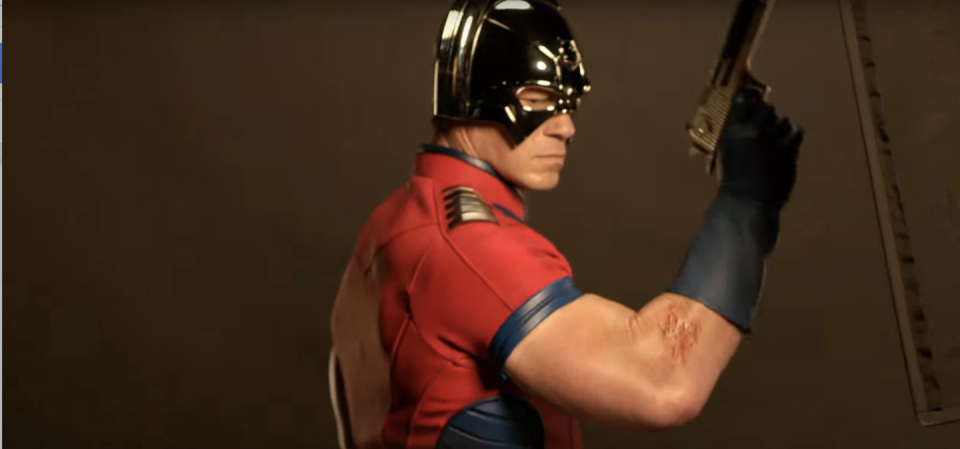
There are a thousand reasons why this could be the case (including the fact that Chris is the main protagonist of the show, whereas Leota is only a supporting character, and could therefore have more of her screentime dedicated to her personal life), but it ultimately comes across as a kick in the teeth for bi people. Leota herself is a lesbian, but Chris is "Open to anything sexually," as Gunn puts it to Empire.
Where Leota's queerness is used to give her depth and heart, Chris's is used to belittle and hurt him. And when bi people have it as hard as we do, that isn't good enough.
A 2017 study carried out by Stonewall and YouGov found that only 20% of bisexual people surveyed were out to all their family, compared to 63% of gay and lesbian people. The statistics are just as shocking in educational settings (which are supposedly more open to and accepting of queer people): only 23% of bi students surveyed were out to everyone at university, compared to 44% of gay and lesbian students.
Bi people have reported experiencing discrimination from both inside and outside the LGBTQ+ community, as our openness means we can supposedly pass for straight unless we're snogging someone of the same gender as us.
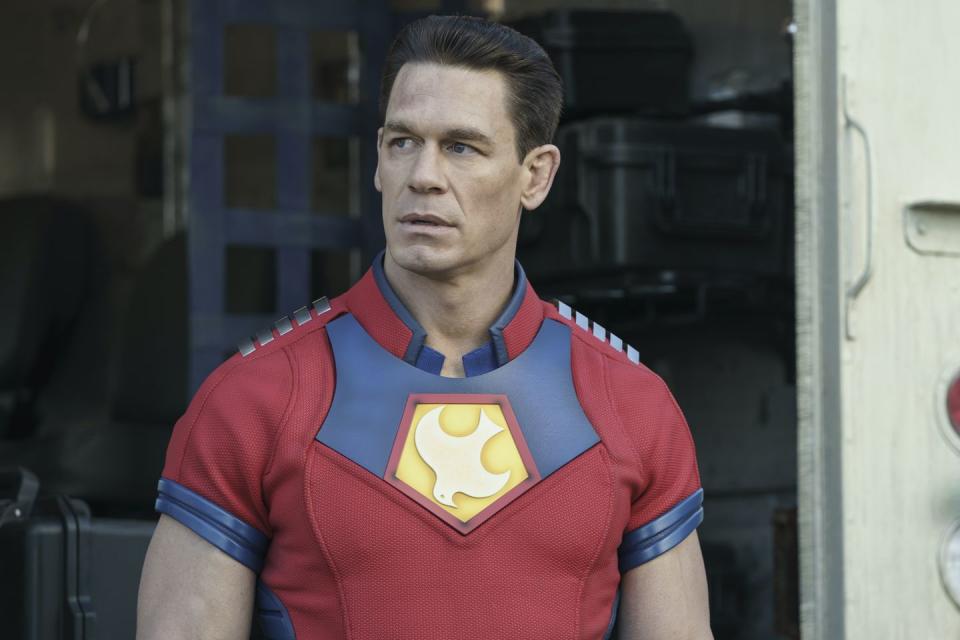
Things can be rough for anyone who's bi, but it can be especially bad for bi men. People tend to forget we exist entirely, as most people assume we're either straight or gay. But being bi means existing outside of that binary, which is something that a lot of people don't understand. That's why bi representation is so important, and that's why it's even more important that it's done in the right way.
Peacemaker dropped the ball here. Given thought and time, Peacemaker's bisexuality could have been something wonderful, like Leota's relationship with her wife. But when it's given a few lines and a slur that are just used to hurt your bi character, you've missed the mark.
You Might Also Like

